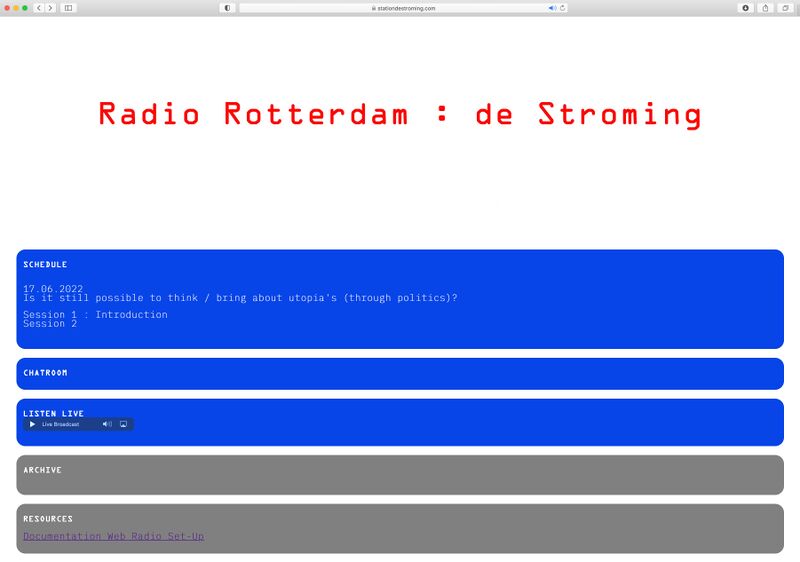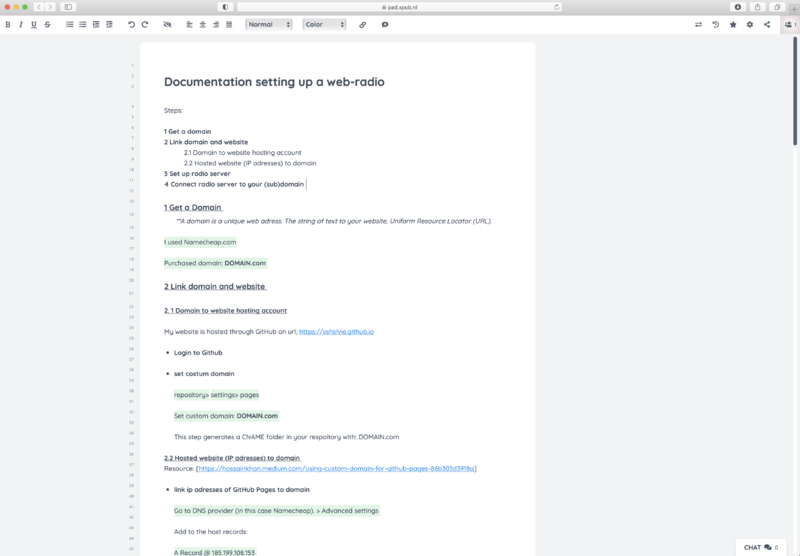User:Trashpuppy/GRAD PROJECT: Difference between revisions
Trashpuppy (talk | contribs) (→What?) |
Trashpuppy (talk | contribs) (→What?) |
||
| Line 3: | Line 3: | ||
For the graduation show I want to present a series of recorded conversations following the concerns elaborated upon in the thesis. The thesis studies the Dutch relationship to water - and how this reflects broader politics - through the case study of Rotterdam. For now mainly focussing on reading together of Dutch migration (and integration) policies and the Rotterdam harbour expansion (economic trade). An axis that shows national borders to fluctuate between fixed and fluid. I would say this text has as its aim, by taking water as its organising principle, to undertake a non-linear study of history. For the writing of this text I have carried out extensive archival research as well as investigated the current policies in place. A main point has been to try to understand Rotterdam through reading the present and past simultaneously and suggesting policies for imagining a more inclusive and equitable future. It is the latter that I will take as the starting point for the project<br><br> | For the graduation show I want to present a series of recorded conversations following the concerns elaborated upon in the thesis. The thesis studies the Dutch relationship to water - and how this reflects broader politics - through the case study of Rotterdam. For now mainly focussing on reading together of Dutch migration (and integration) policies and the Rotterdam harbour expansion (economic trade). An axis that shows national borders to fluctuate between fixed and fluid. I would say this text has as its aim, by taking water as its organising principle, to undertake a non-linear study of history. For the writing of this text I have carried out extensive archival research as well as investigated the current policies in place. A main point has been to try to understand Rotterdam through reading the present and past simultaneously and suggesting policies for imagining a more inclusive and equitable future. It is the latter that I will take as the starting point for the project<br><br> | ||
The hosted conversations revolve around the following question: <b>is it still possible to think / bring about utopia's (through politics)?</b> | The hosted conversations revolve around the following question: <b>is it still possible to think / bring about utopia's (through politics)?</b> <br><br> | ||
*Introduction: | *Introduction: | ||
| Line 9: | Line 9: | ||
*Dany Kirilov | *Dany Kirilov | ||
*Mustapha Eaisaouiyen : Housing, the Tweebosbuurt | *Mustapha Eaisaouiyen : Housing, the Tweebosbuurt | ||
*Cara Mayer Yepez : audio piece | *Cara Mayer Yepez : audio piece <br><br> | ||
*Find someone to talk about the city passport with / migration in Rotterdam | |||
* | |||
These conversations will be presented through the Rotterdam (web) radio "station de Stroming", I have developed to this end. This station functions as a research as well as archive and collaborative note-taking tool. The Dutch <I>de Stroming</I>, translates to 'the current' or 'ideological movement'. | These conversations will be presented through the Rotterdam (web) radio "station de Stroming", I have developed to this end. This station functions as a research as well as archive and collaborative note-taking tool. The Dutch <I>de Stroming</I>, translates to 'the current' or 'ideological movement'. | ||
Revision as of 19:09, 11 May 2022
What?
For the graduation show I want to present a series of recorded conversations following the concerns elaborated upon in the thesis. The thesis studies the Dutch relationship to water - and how this reflects broader politics - through the case study of Rotterdam. For now mainly focussing on reading together of Dutch migration (and integration) policies and the Rotterdam harbour expansion (economic trade). An axis that shows national borders to fluctuate between fixed and fluid. I would say this text has as its aim, by taking water as its organising principle, to undertake a non-linear study of history. For the writing of this text I have carried out extensive archival research as well as investigated the current policies in place. A main point has been to try to understand Rotterdam through reading the present and past simultaneously and suggesting policies for imagining a more inclusive and equitable future. It is the latter that I will take as the starting point for the project
The hosted conversations revolve around the following question: is it still possible to think / bring about utopia's (through politics)?
- Introduction:
- Clara Noseda (clitch):
- Dany Kirilov
- Mustapha Eaisaouiyen : Housing, the Tweebosbuurt
- Cara Mayer Yepez : audio piece
- Find someone to talk about the city passport with / migration in Rotterdam
These conversations will be presented through the Rotterdam (web) radio "station de Stroming", I have developed to this end. This station functions as a research as well as archive and collaborative note-taking tool. The Dutch de Stroming, translates to 'the current' or 'ideological movement'.
The next month I want to use this tool by hosting a series of conversations and broadcasting these during the graduation show in conjunction with images and collages made based on the conversations and the thesis.


